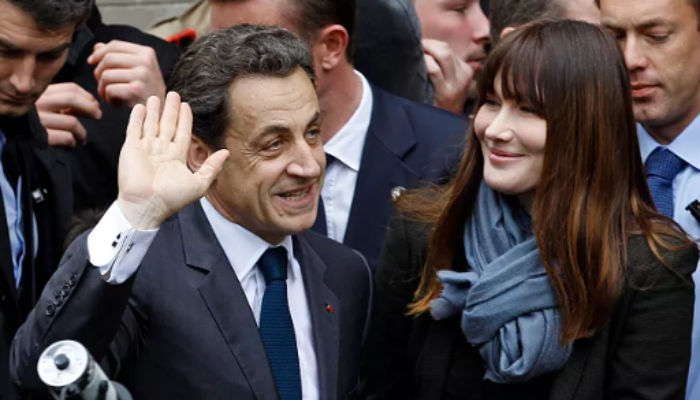
Nicolas Sarkozy Faces Seven-Year Sentence Over Alleged Libyan Campaign Financing
Former French President Nicolas Sarkozy is facing severe legal consequences, as French prosecutors have requested a seven-year prison sentence and a €300,000 fine in relation to alleged illegal campaign financing from the Libyan government. The prosecution also demands a five-year ban on Sarkozy’s civil, civic, and family rights, which would prevent him from holding public office or engaging in any judicial role in the future.
The case, which began in January 2025 and is expected to conclude by 10 April 2025, is one of the most serious legal challenges faced by Sarkozy since leaving office. The charges center on claims that his 2007 presidential campaign received millions of euros from former Libyan leader Muammar Gaddafi’s government, violating French electoral laws.
What are the Charges Against Nicolas Sarkozy?
Sarkozy, who served as France’s president from 2007 to 2012, faces multiple charges in connection with the 2007 presidential election. These include:
- Passive corruption
- Illegal campaign financing
- Concealing embezzlement of public funds
- Criminal association
The prosecution believes that Sarkozy was involved in a corruption pact with the Gaddafi regime during his campaign, which ultimately influenced his rise to the French presidency.
Background: The Libyan Funding Allegations
The allegations against Sarkozy first emerged in 2011 when a Libyan news agency and Gaddafi himself claimed that the Libyan government had secretly funneled funds into Sarkozy’s 2007 election campaign. In 2012, Mediapart, a French investigative outlet, published what it described as a Libyan intelligence memo that referenced a €50 million funding deal for Sarkozy’s campaign.
Sarkozy denied the authenticity of the document and sued for defamation, but French magistrates later deemed it likely authentic. However, conclusive evidence proving the transaction has not been presented.
Key Figures and Witnesses in the Case
One of the central figures in the investigation is Ziad Takieddine, a Franco-Lebanese businessman, who alleged in 2016 that he had delivered suitcases filled with cash from Libya to Sarkozy’s Interior Ministry during the campaign. Takieddine later retracted his statement, which has raised questions about potential witness tampering. Both Sarkozy and his wife, Carla Bruni-Sarkozy, are under investigation for possible involvement in this matter.
Other Individuals on Trial
Along with Sarkozy, several former government officials, including Claude Guéant, Brice Hortefeux, and Éric Woerth, are also standing trial in connection with the case. However, prosecutors have made it clear that Sarkozy is the primary focus, accused of accepting illegal foreign funds to influence the outcome of the 2007 election.
Sarkozy’s Legal History and Political Impact
Sarkozy’s legal troubles extend beyond the Libya case. In December 2024, France’s highest court upheld a conviction for corruption and influence peddling, sentencing him to house arrest. Additionally, in February 2024, he was convicted of illegal financing related to his failed 2012 re-election bid.
The Libya affair is considered the most politically sensitive of all the cases against Sarkozy, and if convicted, he would become the first former French president found guilty of accepting illegal foreign funds for a presidential campaign.
What’s Next for Sarkozy?
Sarkozy has denied all wrongdoing related to the Libya financing allegations, asserting that the claims are politically motivated and based on falsified evidence. If convicted, Sarkozy could face significant political and personal consequences, further tarnishing his post-presidency reputation.
The court’s verdict in this high-profile trial is expected later in 2025, and it may serve as a defining moment in Sarkozy’s legacy.
Conclusion: A Turning Point for Sarkozy’s Legacy
As Sarkozy’s trial unfolds, the outcome of the case will have significant implications for his legacy and political future. The demand for a seven-year sentence in this high-profile legal battle signals the seriousness of the charges, with Sarkozy’s involvement in alleged illegal Libyan campaign financing at the heart of the investigation.
